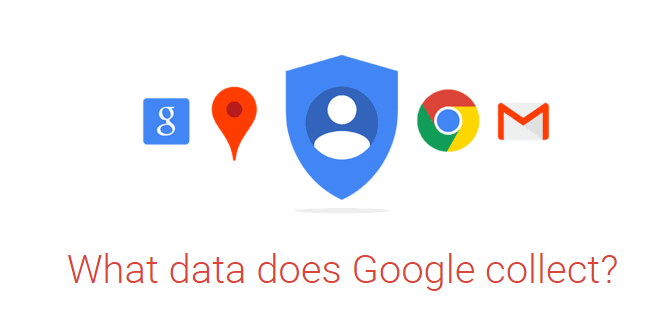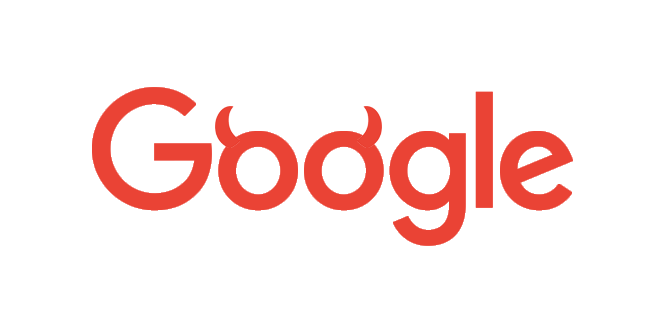Without any doubt, Google is at the top of the food chain when it comes to the web. Born as a search engine, it has evolved to include numerous products that can be found on many places on the internet.
Among the numerous products Google has in its arsenal, they include trackers, which are created for a good cause: knowing what you do so Google can deliver the best product experience for you.
However, those trackers are also used to target users with ads.
Google is an multinational technology company that specializes in internet-related services and products, which include online advertising technologies. Here, its trackers are those little codes that follow you around, profiling you to deliver ads that Google thinks will appeal you.
While to most people, Google in invading a bit of their privacy isn't much of a problem, but for privacy-concerned individuals, many don't like being followed.
Below is a list of Google's most common and popular products that are tracking users wherever they go on the web. You may opt out to one or more of the products if you find them offensive to your privacy.

Google Search
The most notable service on the web. The search engine has a lot of features, quick and packed with information that no other search engine can match. If you have logged in into your account, your search data will be tied to your account, and can be used by Google to target you with relevant ads.
Google tracks every single query you type into its search field. What this means, everything you do on Google Search, leaves traces. Here, if details of a user's searches are found, those with access to the information, like the government officials or law enforcement, can make deductions about their activities.
And this has been used for the detection and prosecution of lawbreakers.
Google has also been criticized for placing long-term cookies on users' machines to store these preferences, a tactic which also enables the company to track your search terms and retain the data for more than a year.
Gmail
Another Google's most prominent product, is Gmail, the one of the most widely used email service. Gmail is advertising-supported, and can be synchronize through third-party services using POP or IMAP protocols.
Google's mail servers automatically scan emails for multiple purposes, including to filter spam and malware. However, it can also add context-sensitive advertisements next to emails. This advertising practice has been criticized by privacy advocates due to concerns over unlimited data retention, ease of monitoring by third-parties, and the potential for Google to change its policies to further decrease privacy by combining information with other Google data usage.
YouTube
One of the most popular video-streaming website on the web.
Videos that are hosted on YouTube, when seen by you, can also be tied to your account. What's more, it uses cookies to know your interests and habits. The decision has been criticized by the Electronic Frontier Foundation, which called the court ruling "a setback to privacy rights".
If the video is embedded on websites, the uploader can also track you using Google Analytics by enabling the built-in video variable inside Google Tag Manager.
YouTube Insights can collect a lot of data from you.
Google Maps
Offering satellite imagery, street maps, 360 degree panoramic views of streets (Street View), real-time traffic conditions (Google Traffic), and route planning for traveling using various methods.
Google Maps is a sophisticated product packed with a lot of features that are indeed useful, but it has received criticism over privacy concerns. Particularly, it has a location history tracking page (Google Maps' Timeline) that offers "step by step" location logging in real-time 24/7.
Privacy advocates advise users to disable the tracking feature.
Google Drive
Google Drive is a file storage and synchronization service that allows users to store files on their servers, synchronize files across devices, and share files. Immediately after its launch, Google faced criticism over Google Drive's privacy. In particular, privacy advocates have noted that Google has one unified set of Terms of Service and Privacy Policy agreements for all its products and services.
According to its terms, Google does not own the files that are uploaded by users to Google Drive, but the company can do whatever it likes with them
Google keeps track on edits or comments, renames, moves or removes, uploads, shares as well as reshares. The data are collected in Google Drive's View Activity.
Android
The most popular mobile operating system with the most users around the world. The OS is used on numerous smartphone vendors, and packed with evergrowing features.
Because Android is Google's, user activity can be tied to the user's account. What's more, Android is known to be fragmented and prone to security issues due to Android in taking a longer time to patch bugs.
Google Chrome
Google's famous web browser. It packs a lot of feature and capabilities, making it one of the most widely-used browsers on both desktop and mobile.
Chrome sends details about its users to Google through both optional and non-optional user tracking mechanisms. Some of Chrome's tracking mechanisms can be enabled or disabled, while some others can't.
Chrome has been criticized because it provides the information typed into the Omnibox to the search provider before the user even presses enter. This allows the search engine to provide URL suggestions, but also provides it with your web usage information tied to your IP address.
What's more, its feature to help resolving spelling errors also has privacy implications.
Google's Messaging Apps And Others
Google has a lot of other products that include messaging apps like Hangout, Allo and Duo; social media service with Google+, blogging platform with Blogger and many more.
These products, just like any other Google products mentioned above, have their own tracking mechanisms. Once you use them, your usage data are tied to your account.
Conclusion

Google has a lot of products, and may introduce new ones from time to time to see how well people will accept them. Google has a unified ability to track and profile users that use its products. And with many of its products popular and widely used, it's not at all difficult for Google to invade your privacy by knowing a lot from you.
While you can certainly control most of the things that Google know by accessing your account and head to its Privacy page, there are still things you can't control. After all, Google lives on advertising, and advertising is what keeps it running. So whatever it takes, it needs to know at least a thing or two about you in order to show you the best user-experience and ads.
According to Google:
But if you are worried about your privacy, and think that Google is invasive or "evil", well, you're not alone. Since Edward Snowden and the many criticisms Google has received over the years, many have opted to not use Google.
Without Google, there are alternatives you can choose from, and many are great. But still, the internet experience won't be the same.
